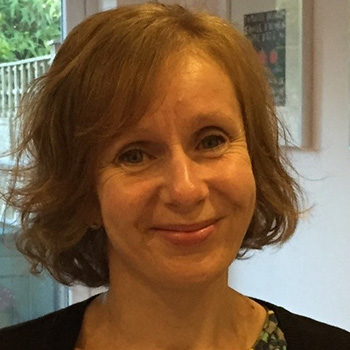Sarah Matthews
Professor and Head of Solar Phyiscs
UCL Mullard Space Science Laboratory,
Holmbury St Mary, Dorking RH5 6NT, UK
Birth Place, Country:
London, UK
Academic Details:
BSc Hons (1st class), University of Glasgow, 1992
PhD Solar Physics, University of Glasgow, 1996
Career overview:
I began my research career as a PDRA working on SOHO CDS at UCL-MSSL, where I subsequently obtained a lectureship, followed by a readership and professorship, all within the solar physics group.
Current research/ job focus:
I am currently professor and head of solar physics at UCL-MSSL, as well as Director Education and programme director for the MSc Space Science & Engineering. I am involved with space instrumentation projects that include Hinode EIS, Solar Orbiter EUI and SPICE, and Solar C_EUVST as well as with DKIST and EST. A not insignificant part of my job is promoting these instruments and facilities – to scientists, funding agencies and the public.
Area of expertise:
My expertise is in the analysis and interpretation of multi-wavelength imaging and spectroscopy (from the visible to X-ray) of the solar atmosphere, which allows us to remotely sense how the physical state of the solar plasma changes in response to energy release and deposition, and in turn how that relates to, and is driven by, the changing magnetic field.
Area of interests:
My research activities are centred on understanding the storage and release of energy in magnetic fields in the solar atmosphere, both in the explosive phenomena such as flares and coronal mass ejections that have relatively short-lived but potentially devastating effects on the near-Earth space environment, as well as on the more steady-state (although still dynamic) processes that occur in active regions.
More recently I’ve become increasingly interested in the commonality (or not!) between the processes that we observe in the solar atmosphere and in magnetospheric substorms. The universe is filled with magnetised plasma, and while parameter regimes may differ by many orders of magnitude, the Sun is an amazing laboratory for refining our understanding of how plasma processes operate in all of them.
Role in SOLARNET/PRE-EST:
In Pre-EST I am the lead of the WP charged with defining the legal structure for EST, and ensuring the necessary documents are completed that will enable the project to move to the construction phase. I’m also coordinating the efforts to secure the UK funding contribution for that. In SOLARNET I am involved in the training and mobility program, and will be hosting a school and a workshop on synergies between ground and space-based observations. I’m also involved in the efforts to agree standards and metadata for the data that EST will produce.
What do you like to do when not doing science?
I have two children, who require lots of ferrying around, and chasing after, so that take up most of my spare time, but I am a keen consumer of art and literature in what time is left!
A dose of motivation:
Study what you are passionate about. Even if you decide later that you want to do something completely different the skills you acquire can be applied in other areas. Be flexible and take opportunities that push you.
What motivated you to choose your field of study/ your professional field?
The desire to follow my curiosity and to do things nobody had done before.

